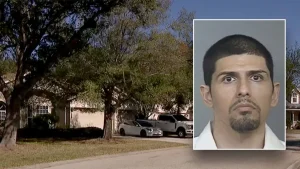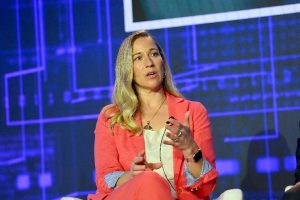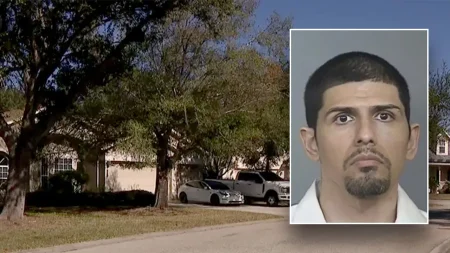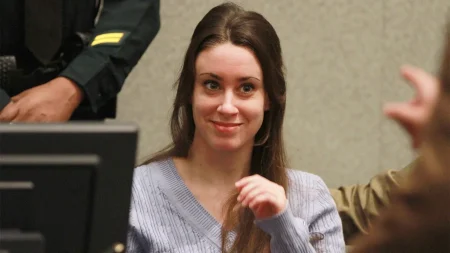Justice Delayed: A Decade-Long Fight for Accountability
In a poignant conclusion to a case spanning nearly 12 years, Ian Cleary was sentenced to two to four years in prison on Monday for sexually assaulting Shannon Keeler at Gettysburg College in 2013. The case gained renewed attention after Cleary sent a Facebook message to Keeler in 2019 that starkly read, “So I raped you.” This digital confession, intended as part of his 12-step recovery program, instead reopened wounds for Keeler and ultimately led to the prosecution that had eluded her for years. Judge Kevin Hess delivered a sentence below state guidelines, considering Cleary’s guilty plea, expressed remorse, and documented history of mental illness—a decision that came more than a year after Cleary’s extradition from France and almost 12 years after Keeler first reported the assault to police.
The assault occurred during Keeler’s first semester on campus when she was just 18 years old. According to her testimony, Cleary sneaked into her dormitory on the eve of winter break—a time when the campus was largely empty—forced his way into her room, and assaulted her. After the attack, Cleary left Gettysburg College and eventually completed his education in California’s Silicon Valley, where he had grown up. He went on to earn a master’s degree and work for Tesla before moving overseas. Meanwhile, Keeler was left to navigate both her trauma and a justice system that repeatedly failed to hold her attacker accountable despite her immediate reporting of the crime. “The system meant to protect me protected you instead,” Keeler told Cleary in court, delivering a powerful ten-minute impact statement that highlighted the years she spent pushing for charges in a system notoriously reluctant to prosecute campus sexual assault cases.
It wasn’t until 2019, when Cleary sent the incriminating Facebook message, that Keeler found new grounds to pursue justice. After noticing the message months later, she renewed her efforts with law enforcement. In 2021, she shared her experience with the Associated Press, spotlighting the systemic reluctance of prosecutors to pursue campus sexual assault cases. The public attention proved pivotal—Cleary was indicted weeks after the AP story was published. However, locating him proved to be another challenge entirely. Following a three-year search, authorities finally located and detained Cleary in Metz, France, on an unrelated vagrancy charge in April 2024, leading to his extradition to face the charges he had evaded for so long.
During Monday’s sentencing hearing, Cleary stood just feet away from Keeler and offered an apology to her and to his father, stating, “I’m committed to getting treatment for mental health and stuff like that as I go forward.” Cleary’s family members have largely remained absent from his court proceedings and have declined to comment on the case. For Keeler, seeing Cleary in court when he pleaded guilty to second-degree sexual assault in July was a “surreal moment” that she had contemplated for twelve years. The prosecution raised questions about whether Cleary had been deliberately evading justice, with Defense attorney John Abom maintaining that his client had experienced homelessness and was unaware of the charges. Adams County District Attorney Brian Sinnett expressed skepticism but acknowledged they couldn’t prove Cleary was intentionally on the run.
The case illustrates the painful reality that justice delayed often means evidence lost and memories faded. “The system that failed me a decade ago finally delivered accountability, but at a cost,” Keeler told the court, noting that the results of the rape kit collected the night of her assault had been destroyed by the time of Cleary’s indictment. Despite the sentence being less than what Keeler’s attorney, Andrea Levy, had hoped for—describing it as “certainly less than he deserves”—there was a sense of relief that the prolonged legal journey had reached its conclusion. Judge Hess acknowledged that anyone with daughters or granddaughters in college would find Cleary’s crime “horrifying,” yet still factored in Cleary’s admission of guilt and apparent desire for forgiveness in his sentencing decision.
Perhaps most powerfully, Keeler transformed her personal tragedy into a platform for broader awareness. “This isn’t just my story, this is the story of countless women,” she declared in court, highlighting how her decade-long struggle for justice reflects the experiences of many sexual assault survivors who face institutional barriers when seeking accountability. Her persistence through years of rejection from the justice system, her willingness to publicly identify herself as a survivor (something the Associated Press noted they typically don’t do without explicit permission), and her eventual vindication represent both a personal victory and a challenge to a system that too often fails survivors. “My life moved on, but the impact never went away, not for me, not for my family, not for anyone who had to watch this unfold again and again,” Keeler testified, capturing the enduring nature of trauma when justice is deferred—and the bittersweet nature of closure when it finally arrives.











